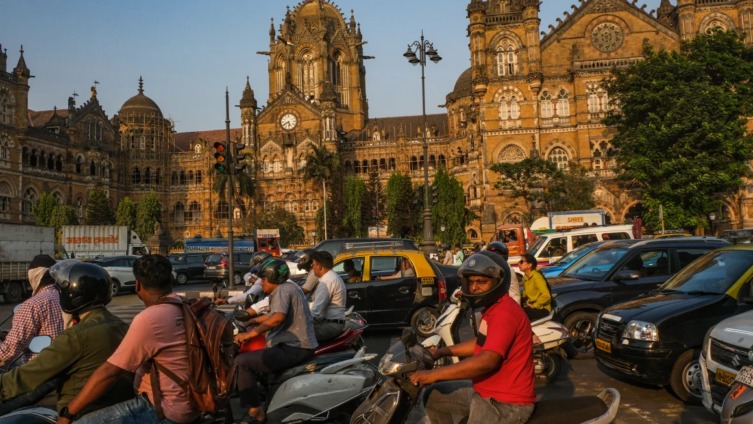For millions of Indians, it’s the city where dreams come true – just look around.
From the gleaming home of Asia’s richest man, Mukesh Ambani, towering over “Billionaires’ Row,” to the waterfront mansions of Bollywood stars, Mumbai is the place where ambitions are realized.
But as India’s financial capital prepares to vote in the country’s massive general election, many residents say they want a fairer share of its wealth – with better education the key to opportunity.
In the densely packed Dadar neighborhood, hustlers and dreamers alike spill out of train stations and shopping complexes, a whirl of humanity weaving through congested streets where market traders tout for business.
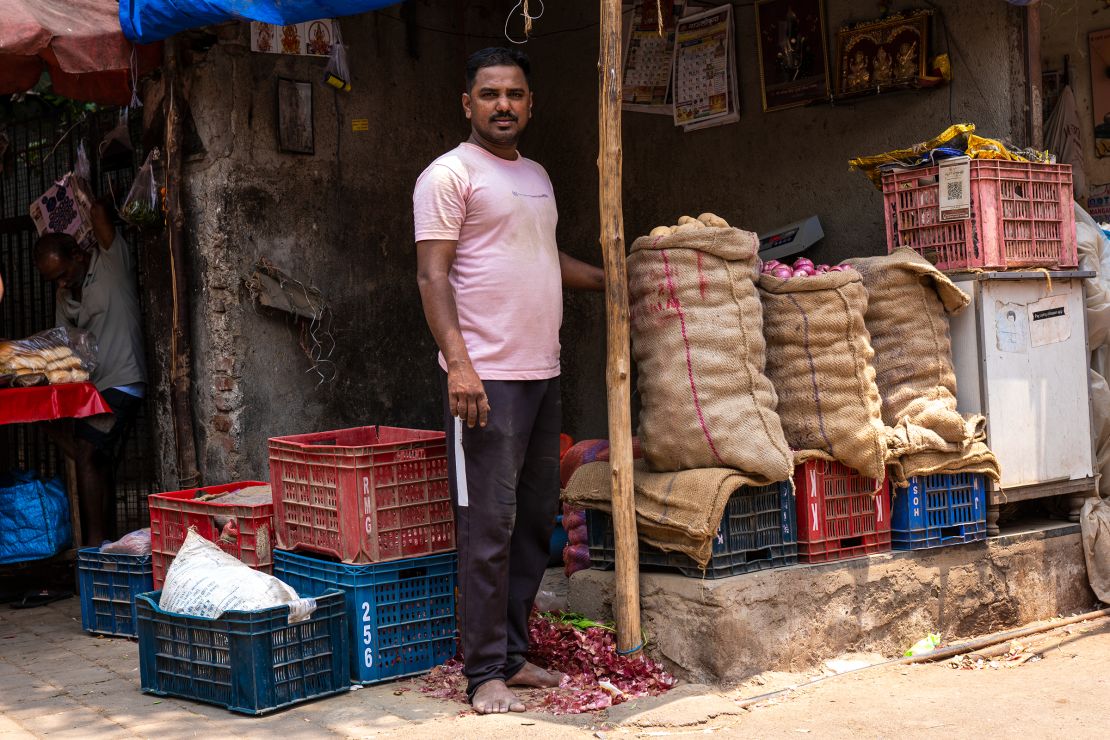
Next to piles of potatoes and onions, 34-year-old grocer Sachin Chaudhary cites rising prices and a tough job market as his biggest concerns ahead of the city’s first voting phase later in May.
“The change I want to see is, things should become less costly,” he says. “And children are getting good educations, so there should also be better opportunities in the employment sector.”
As India’s wealthiest city, Mumbai is often likened to New York – a place of opportunity where everyone is from somewhere else, hoping to make it big and support their families, often in poorer rural hometowns.
But amid the glitz and glam, India’s other half is just as evident. Near tourist hotspots like the iconic Gateway of India, day laborers toil in the stifling heat, carrying heavy loads on their shoulders or selling knickknacks on the side of dusty roads.

The disparity concerns Rajani Bhat, a 42-year-old Mumbai resident with short, spiky hair and an assertive voice.
“I’m worried about the protection of women, especially small girls,” she says from a street dotted with jewelry and clothes stores.
“They are selling dustbin bags, they are doing multiple (jobs), but what about their education? They have parents, but the thing is they (don’t have the right) financial conditions,” she said.
“Somebody should do something for them.”
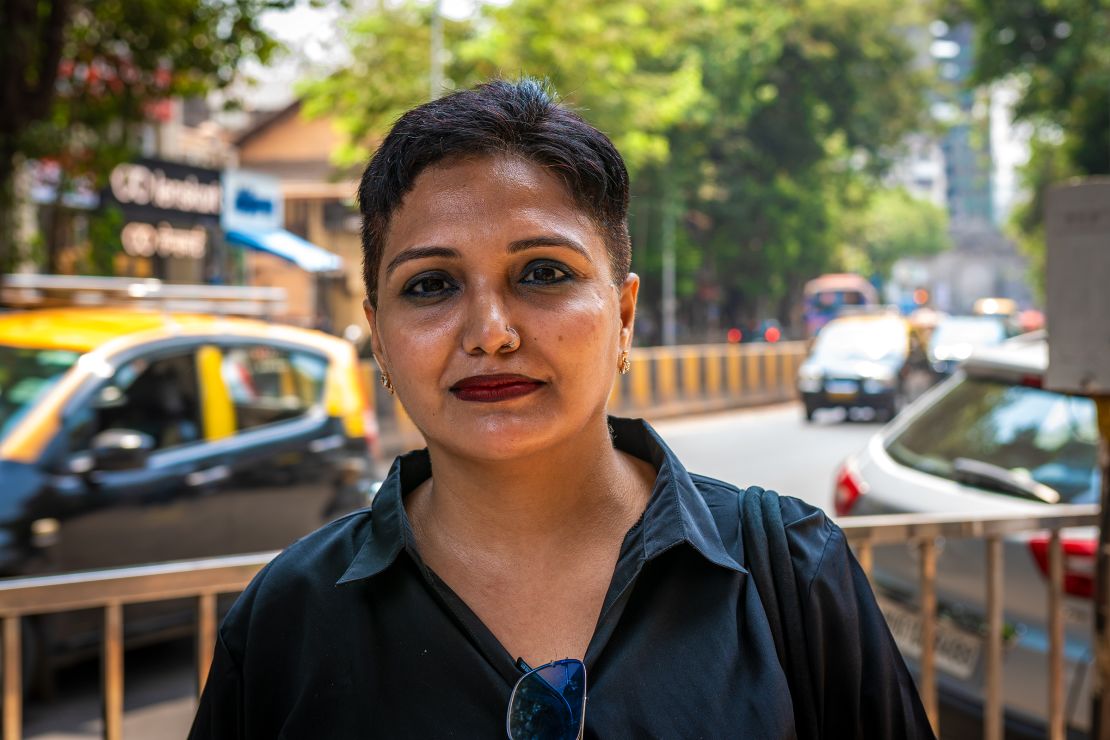
Many poor children in the city are not even 10 years old when they start helping their parents to earn a living. It’s especially common in Mumbai’s infamous slums, which were depicted in the 2008 Oscar-winning film “Slumdog Millionaire.”
Kalpita Shinde, a 43-year-old government worker, also highlights the need for India’s next government to provide its people with greater upward mobility.
“All should have employment, and the jobs should be on par with the better education opportunities we have,” she says. “If people have good jobs, then it’s not just the individual who grows. The whole family also grows and leads a better life.”
Banker Helen D’Souza, 60, agreed with that sentiment.
“I think there’s a lot to be done in this country, as regards (to) the middle class,” she said over the thrum of Dadar’s traffic. “A lot of people are unhappy … When you don’t get something, you lose trust.”
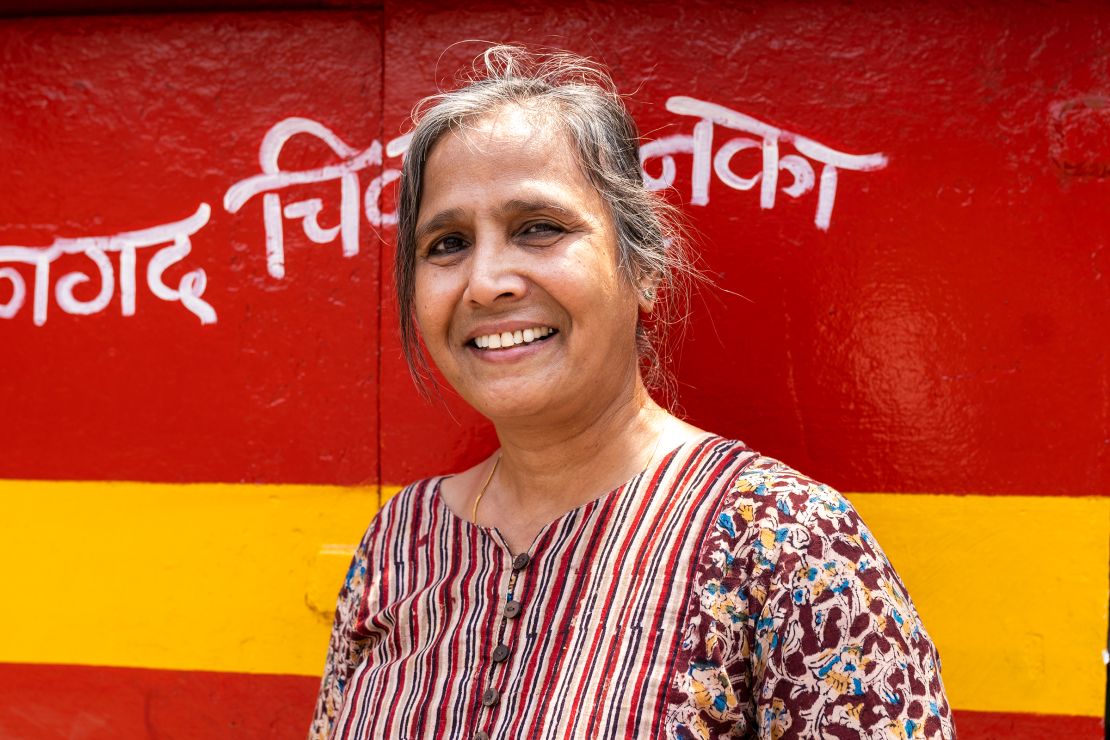
‘I want Narendra Modi’
Every Mumbaikar who spoke to CNN emphasized the importance of voting as a civic duty, but only supporters of one party openly expressed their voting intentions.
The ruling Bharatiya Janata Party (BJP) and Prime Minister Narendra Modi are widely expected to win a third straight five-year term this election, extending his popular but controversial rule into a second decade.
That dominance is reflected in the sheer amount of BJP campaign material displayed across the city, with scant signs of India’s opposition. Modi’s face beams from billboards and hangs off bridges, posters listing his achievements and election promises.
For Bhat, the answer to India’s poverty-stricken girls and women lies in Modi, who has been credited with boosting the country’s economy, infrastructure and global standing.
“I want Narendra Modi – that’s it. He’s a true leader,” she says.
“Before Narendra Modi, nobody was aware about who’s the president, who’s the prime minister.
“But now everybody’s aware of that because he’s going out, keeping relationships (with other countries), so that our country can cope with upcoming problems.”
Chatting to CNN between sips from a paper cup of chai, salesperson Parag Sawla, 42, echoes that sentiment.
“I will vote for the BJP as they are the perfect party,” he says. “For me in this election, we need a party that focuses not only on global issues but on issues that matter to individuals in the country.”
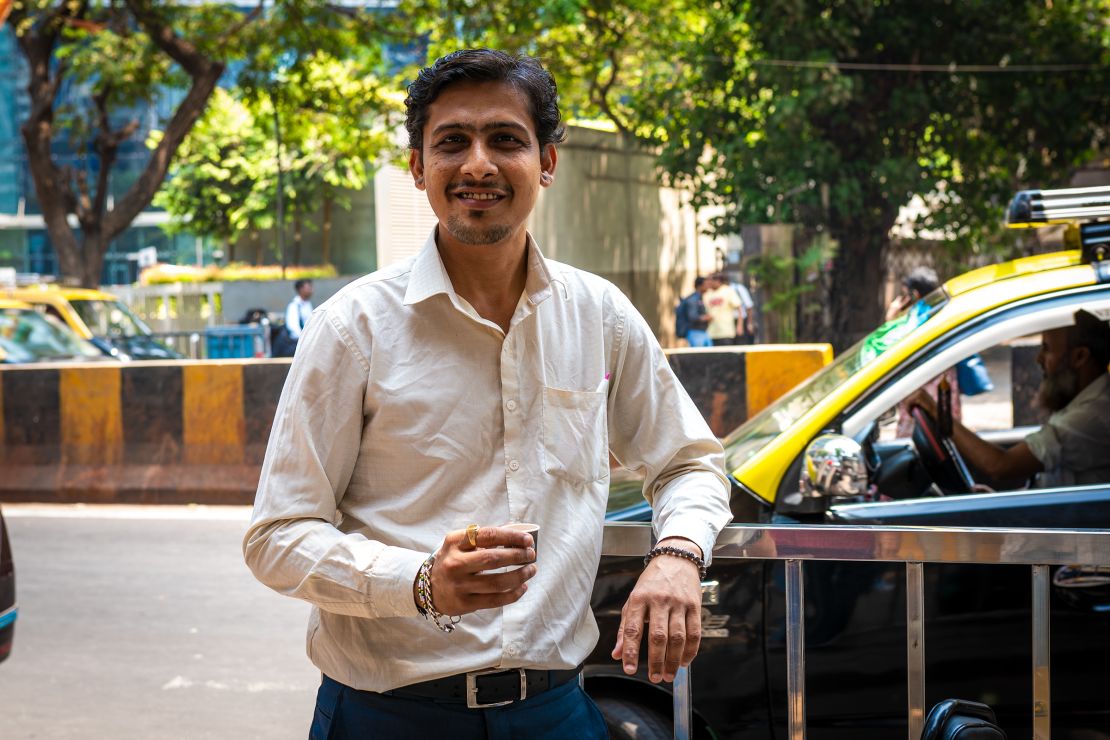
But not every BJP voter is so enthusiastic.
“There is no strong opposition, so I will vote for the BJP, as there are no other (significant) political parties. The BJP is ruling everywhere,” says Chaudhary, the vegetable seller.
“If there was a strong opposition, I would have more choice – but sadly, we don’t.”
Religious tensions
Education and employment aside, several other issues loom in the minds of Mumbai’s voters – especially longstanding religious tensions that have spiraled under Modi’s tenure.
Modi and his BJP have been accused of driving religious polarization with Hindu-nationalist policies, giving rise to a wave of Islamophobia and deadly communal clashes. Many of the country’s 230 million Muslims say they are being sidelined and marginalized in the world’s largest democracy.
One major point of contention is the BJP’s attempt to pass a Uniform Civil Code (UCC), a set of common laws for personal matters such as marriage, divorce and inheritance – replacing religious laws followed by different groups.
Some critics fear the government’s Hindu-nationalist policies could unduly influence the legislation, further threatening the rights and freedoms of minorities. Others, however, say the reform of religious laws represents progress.
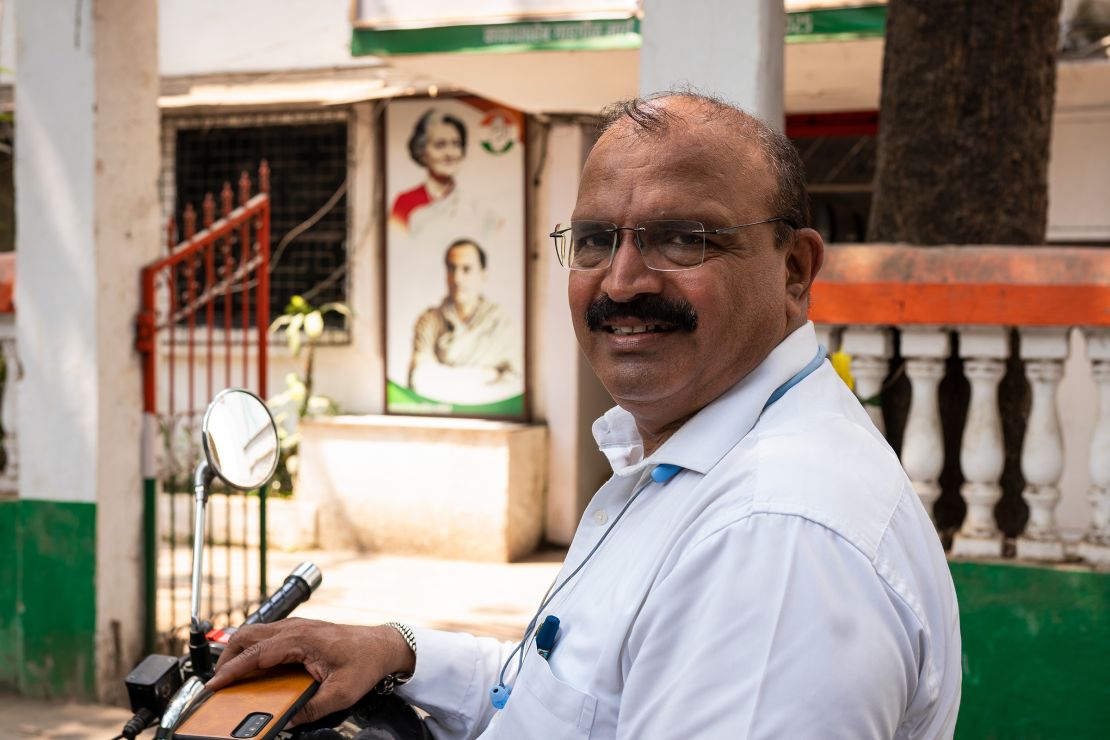
Sanjay Sardesai, a 60-year-old retired airline worker, wouldn’t indicate who he’s voting for but says the civil code is the most important election issue.
“It means that all sections of society, irrespective of their religion, shall be treated equally,” he tells CNN while resting on his motorbike in Dadar.
“That should be implemented so we are given the same rights all across India.”
Latest Stories
-
DAMC, Free Food Company, to distribute 10,000 packs of food to street kids
49 minutes -
Kwame Boafo Akuffo: Court ruling on re-collation flawed
1 hour -
Samuel Yaw Adusei: The strategist behind NDC’s electoral security in Ashanti region
1 hour -
I’m confident posterity will judge my performance well – Akufo-Addo
1 hour -
Syria’s minorities seek security as country charts new future
2 hours -
Prof. Nana Aba Appiah Amfo re-appointed as Vice-Chancellor of the University of Ghana
2 hours -
German police probe market attack security and warnings
2 hours -
Grief and anger in Magdeburg after Christmas market attack
2 hours -
Baltasar Coin becomes first Ghanaian meme coin to hit DEX Screener at $100K market cap
3 hours -
EC blames re-collation of disputed results on widespread lawlessness by party supporters
3 hours -
Top 20 Ghanaian songs released in 2024
4 hours -
Beating Messi’s Inter Miami to MLS Cup feels amazing – Joseph Paintsil
4 hours -
NDC administration will reverse all ‘last-minute’ gov’t employee promotions – Asiedu Nketiah
4 hours -
Kudus sights ‘authority and kingship’ for elephant stool celebration
4 hours -
We’ll embrace cutting-edge technologies to address emerging healthcare needs – Prof. Antwi-Kusi
5 hours

